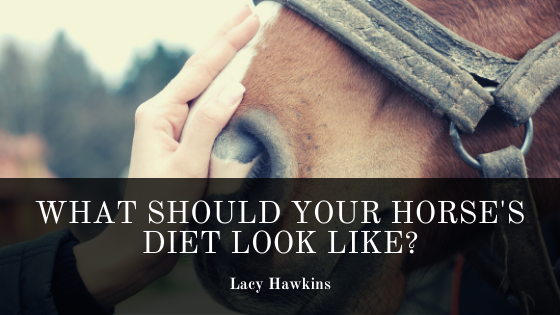The natural diet of horses comes from the grass, grass stalks, and sundry plants they find when roaming in a natural habitat. Before humans developed an integral relationship with these magnificent creatures, they did not eat grain.
Your horse today requires little or no grain, such as oats, corn, or wheat. The optimal diet for horses contains a large amount of roughage, the kind they get from pasture grass and hay. A horse requires one to two percent of its total body weight in roughage every day.
If a horse does not have access to a lot of pasture time during the day, their natural diets can be more or less replicated by offering them hay all day. Horses will self-regulate their food intake, nibbling on hay when they feel like it and taking naps in between.
This does not mean that small amounts of grain in their diets cannot be beneficial. If you opt to feed your horse grain, supply small portions throughout the day. A horse should not eat a large amount of grain in one sitting. That can cause digestive problems.
Keep in mind that all horses are different. Their lifestyle situations are also varied. For example, some people are fortunate to allow their hoses to run freely in broad pasture lands where plenty of natural grass is available. Other horses may spend the bulk of their time indoors.
Thus, both the size of the horse and the level of activity they enjoy should be prime considerations into what goes into their diets. Horses that get less exercise and too much feed can be subject to obesity.
If a horse gets a lot of pasture time, including exercise and plentiful access to natural grass stalks, they will require far less hay when boarding inside. They may need no additional hay at all.
During times of drought, pastureland may provide less natural food and grass of inferior nutritional value. In that case, supplementing with hay is probably a good idea. This is also the case for the winter months, depending on location.
As for grain, the best rule is “less is more.” If your horse is getting plenty of grass and/or hay, offer small amounts of grain and increase the amount based on your best judgment and/or advice from a vet.
